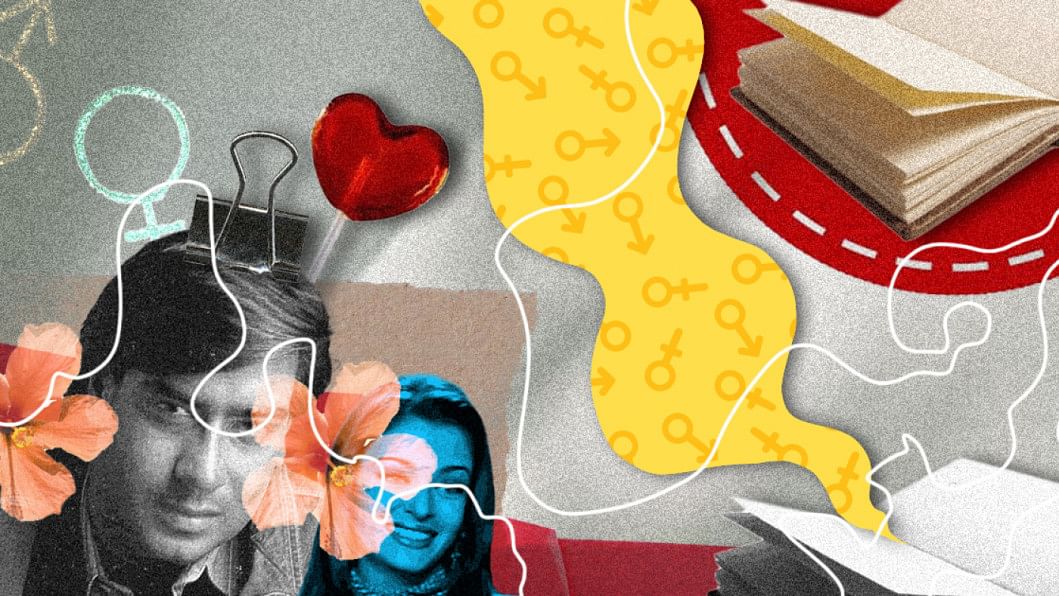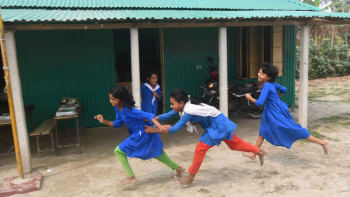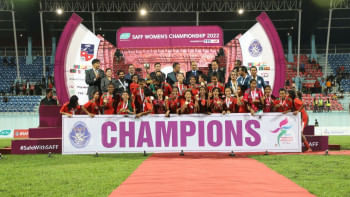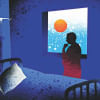Bollywood, sex education, and teaching consent

I found out last Sunday that Ajay Devgn taught my husband about consent.
He was a budding teenager watching a movie clearly not intended for his age group. It was a 90s romance where the parents forcefully married off the heroine, Aishwarya Rai, who loved someone else. Not able to tolerate Ajay's advances on the wedding night, and in a climactic turn of events, Aishwarya shrugs off her bridal saree defiantly, daring him to take her – knowing her heart isn't in it. Ajay, ever the gentleman, steps back and insists nothing would take place in this relationship without her full consent. "It taught me it's only fun if both parties are having fun," my husband mused over a cup of tea. I wondered how, out of all the problematic Bollywood films that surrounded him growing up, he learnt from one of the only ones that were not.
I soon realised it was not the movie that found him, but he who chose which movie would impact his psyche. It was only because he was equipped with a modicum of empathy that he could filter out all the eve-teasing-heavy 90s films, and cling on to a humane approach to sexuality and individuality. Hundreds of social awareness programmes and thousands of opinion pieces like this one would not have swayed his perspective on bodily autonomy, had his moral compass been slightly askew from an early age – an age so early that most of our conversations and policies surrounding consent education completely miss it. We depend on families to educate children with the basics of empathy and morality, and we depend on society to guide them to healthy relationships. But more often than not, any successes in either field is completely accidental.
The verdict on comprehensive sex education is out: there is a significant positive correlation between access to sex education in schools and having healthy relationships in adulthood. Sex education in childhood translates to improved well-being indicators on nearly all fronts – physical, emotional, and mental health of adults – and the benefits far outweigh any other intervention at this stage of life. Law enforcement, community-building, and urban design may lower the chances of sexual assault in public spaces, and may even force citizens to engage in civil debate around sexuality, but it does little for direct or indirect violations of human rights behind closed doors. When it comes to such grievous social harm, we cannot relegate the tasks to external bodies to punish criminals or seek retribution; we must push for prevention so that the harm does not take place in the first place.
Given that sex education is the answer, the main questions that we need to ask are those that plague all practitioners: What, when, and how? What type of sex education, at which age, presented in what manner would be most effective for our demographic? These are the questions I have pursued for a good part of my adult life, mostly because of a singular drive to prevent what happened to me from happening to anyone again. I am sure many women and men around the world feel the same. It is a slowly seething, burning rage at a system that is not designed to keep abuse at bay, but invites it. Even though Bangladesh has improved significantly in gender parity, especially compared to its neighbours, it faces the prospect of a bitter end to the economic growth witnessed through the emancipation of women if it does not hold social forces in check. The government is acutely aware of this.
In 2012-2016, the education ministry introduced gender education – Gender Equity Movement in Schools (GEMS) module – in collaboration with the United Nations Population Fund (UNFPA) in hundreds of schools. People graduating from the programme speak highly of their lessons, which have stayed with them to this day. While national implementation is in the works, I find it important to share transferable lessons from countries with similar context or characteristics (India, Oman, and Israel) for Bangladesh's design of comprehensive sex education, not merely gender education.
Most countries I researched found that the earlier they implemented comprehensive sex education, the more effective it was. GEMS was launched in the 12-14 age group, when it should be imparted phase by phase from earlier grades – even elementary school, bearing in mind that sex education for children is not the same as that for young adults. For example, "consent" or "autonomy" are complex terminologies for a child to grasp, but the ideas around consent – good touch/bad touch, respectful bodily contact, moderated language – are age-blind. Interactive curricula, follow-up group exercises and class discussions provide the greatest bang for buck as they are more cost-effective than impressive audio-visuals, which often act as passive engagement. Additionally, adjusting language for localities and including non-central examples do wonders for communication. Imagine a Sylheti teacher speaking in his dialect and bringing in examples that are relevant for that locality.
That brings us to one of the biggest determinators of success in comprehensive sex education: facilitators. Not only is it crucial that teachers are trained to carry out these interactive lessons, but also that they believe in the material that is being taught. Authentic engagement with the principles of the programme is of paramount importance and not something that can be forced. The Bangladesh government may wish to hire separate roaming, specialised sex educators, but I personally don't think that is required. Even in remote Goshairhat, I found teachers lecturing about sanitary napkins and period without using a single euphemism – a prospect unthinkable a mere decade back. Bangladesh has a lot to be proud of, and our teachers – underpaid, under-trained and underappreciated as they are – are in most parts phenomenally dynamic. However, whether they have the time or support to accommodate an extra module in a chaotic educational environment is something that the education ministry badly needs to assess.
When all assessments are done and dusted, our interventions are not executed in a vacuum. The module that teachers present to students might be innocuous and effective, but students can only retain lessons if society is actively involved. In Bangladesh, local government, central government, and private actors are often in alignment in the execution of social programmes – think family planning and girl education. But where engagement is crucially missing is on the religious front.
My research on countries with a similar demography found that the inclusion of Islamic bodies and authorities in early-stage design raises the credibility of the course content while making implementation smoother. Many may argue that it leaves too much room open for religious interjection in a textbook, but what it in fact ensures is that there is a check on religious sensitivity prior to national launch. Islamic countries throughout the world have comprehensive sex education at schools, and the ulama of Bangladesh are aware of that. In Islam, there is specific mention of a child's right to understanding their body and mind – and, by conjecture, their relationship with other people in context of that mind and body. I am not positing at any point that all stakeholders in this venture – government, schools, ulama, priests, parents – will agree on all aspects of the design, but it is important that they agree on the need for it. That need is evident, and ultimately, sex education will only be successful if every part of the community owns it.
What "successful" means also varies. We cannot hope for a Scandinavian version of sexual awareness in a decade, and we should not hope for that either. If my research has shown anything, it is the importance of careful lesson extrapolation, not replication, as the latter always results in a mixed bag of results. After a decade of comprehensive sex education, Bangladesh should hope to have a tolerant society, where interpersonal relationships are approached with respect – not necessarily Western liberalism or Arab conservatism. I envision a Bangladeshi society with a basic understanding of consent, where there is no need for Ajay Devgns to come to sudden realisations on screen, but only a somewhat peaceful acceptance of another human being's right to live freely and without interference. That will do just fine.
Mastura Tasnim is a policy consultant working on local development, religiopolitics, and gender education.

 For all latest news, follow The Daily Star's Google News channel.
For all latest news, follow The Daily Star's Google News channel. 











Comments